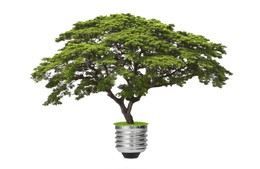Themes
 The
two central themes to Rio +20 - a green economy in the context of
sustainable development and poverty eradication and the institutional
framework for sustainable development - were approved by the UN General
Assembly, by consensus among all the 193 countries that comprise the
UN. During preparatory meetings, countries have made proposals on
these themes, seeking results that may be adopted at the Conference.
The
two central themes to Rio +20 - a green economy in the context of
sustainable development and poverty eradication and the institutional
framework for sustainable development - were approved by the UN General
Assembly, by consensus among all the 193 countries that comprise the
UN. During preparatory meetings, countries have made proposals on
these themes, seeking results that may be adopted at the Conference.
- A GREEN ECONOMY IN THE CONTEXT OF SUSTAINABLE DEVELOPMENT AND POVERTY ERADICATION
The "green economy" is an instrument for the execution of policies and programs to strengthen the implementation of sustainable development commitments in all UN countries. In Brazil's view, a "green economy" should be seen in the context of sustainable development and poverty eradication, since the topics - the economy and the environment ("green") - cannot be decoupled from social concerns.
The debate about a "green economy" brings with it the opportunity to achieve complementarity and synergy with other international efforts, including activities and programs catered to the different realities of developed and developing countries. It is important to remember that reducing inequalities - both nationally and internationally - is vital to the full realization of global sustainable development.
- INSTITUTIONAL FRAMEWORK FOR SUSTAINABLE DEVELOPMENT
Discussions about the institutional framework have sought ways to improve the coordination and effectiveness of activities undertaken by various institutions of the UN system dedicated to the different pillars of sustainable development (economic, social and environmental). The countries have debated ways through which programs aimed at economic development, social welfare and environmental preservation can be organized into joint efforts, corresponding to sustainable development aspirations.
Some of the submitted proposals are in favor of a reform in the Commission on Sustainable Development (CSD), in order to strengthen its mandate in monitoring the implementation of Agenda 21, adopted during Rio-92, as well as its role as a coordinator of the discussion between countries and civil society representatives. As for the reform of environmental institutions, several countries have demonstrated the importance of strengthening the working capacity of the United Nations Environment Programme (UNEP), increasing the predictability of resources available for the institution to effectively support projects in developing countries. The reform of the institutional framework for sustainable development must observe the balance between social, economic and environmental aspects.






